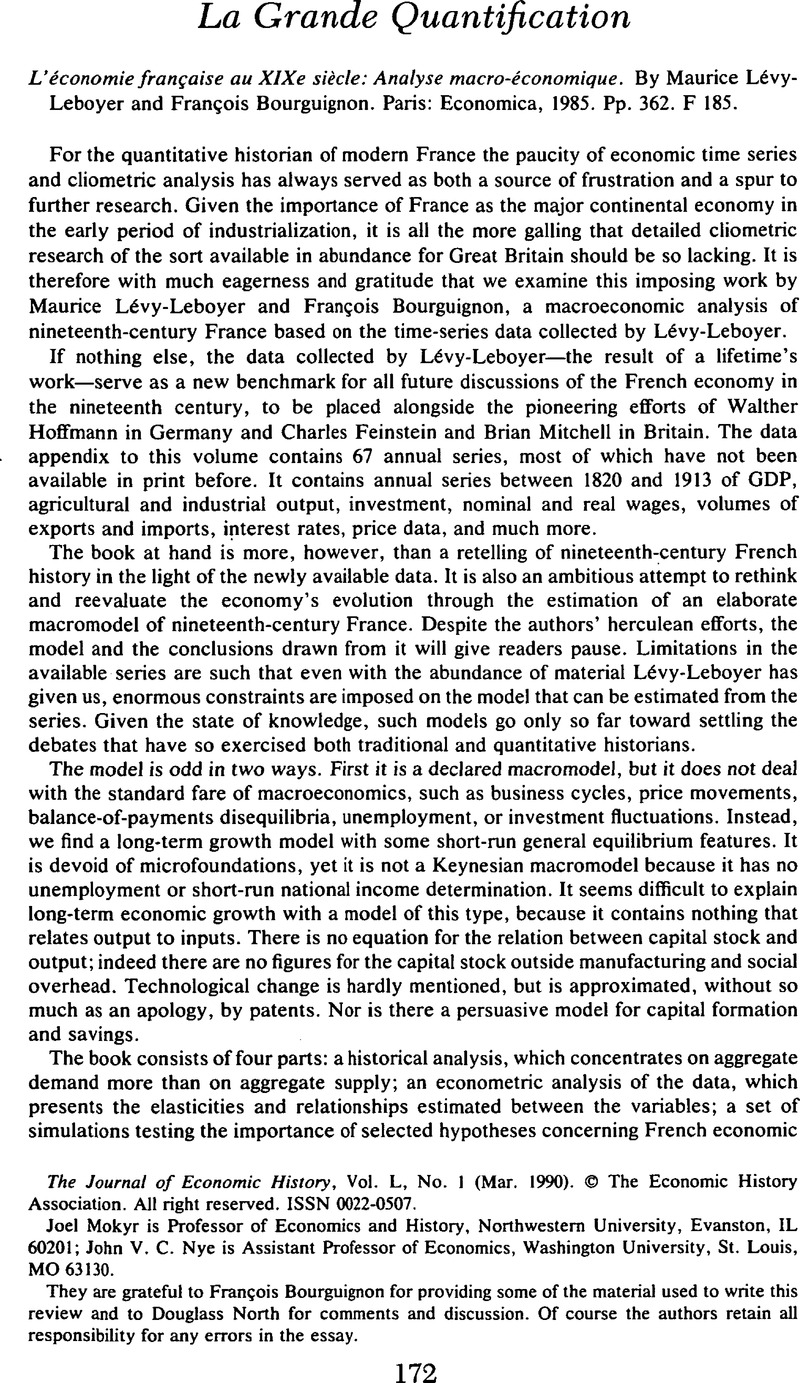Article contents
La Grande Quantification
Review products
Published online by Cambridge University Press: 03 March 2009
Abstract

- Type
- Review Article
- Information
- Copyright
- Copyright © The Economic History Association 1990
References
1 This pattern of changing real wages seems to hold for a number of other countries as well. See Mokyr, Joel, “Dear Labor, Cheap Labor, and the Industrial Revolution,” in Higonnet, Patrice and Rosovsky, Henry, eds., Economic Growth: Constraints and Responses (forthcoming).Google Scholar
2 Olson, Mancur, The Rise and Decline of Nations (New Haven, 1982).Google Scholar
3 It is worth noting, however, that the average level of French tariffs was rather low throughout the nineteenth century, particularly in comparison to Great Britain. Even so, there was a substantial drop in this level throughout the 1850s and 1860s. The issue of relative tariff levels is taken up in Nye, John V. C., “The Myth of Free-Trade Britain and Protectionist France: Tariffs and Trade in the Nineteenth Century,” manuscript, Washington University, 1989.Google Scholar
4 The various pieces in the revisionist and anti-revisionist tradition are too numerous to mention by now, but important references relevant to the debate can be found in the following: O'Brien, Patrick and Keyder, Caglar, Economic Growth in Britain and France 1780–1914 (London, 1978)Google Scholar; Cameron, Rondo and Freedeman, Charles E., “French Economic Growth: A Radical Revision,” Social Science History, 7 (Winter 1983), pp. 3–30CrossRefGoogle Scholar; Crafts, N. F. R., “Economic Growth in France and Britain, 1830–1910: A Review of the Evidence,” this JOURNAL, 44 (03 1984), pp. 49–67Google Scholar; Roehl, Richard, “French Industrialization: A Reconsideration,” Explorations in Economic History, 13 (07 1976), pp. 233–81CrossRefGoogle Scholar; O'Brien, Patrick, “Do We Have a Typology for the Study of European Industrialization in the XlXth Century?” The Journal of European Economic History, 15 (Fall 1986), pp. 291–333.Google Scholar
5 Several papers have appeared that question some of the specific arguments relating to the alleged French failure. These include Nye, John Vincent, “Firm Size and Economic Backwardness: A New Look at the French Industrialization Debate,” this JOURNAL, 47 (09 1987), pp. 649–69Google Scholar; and several articles in Fridenson, Patrick and Straus, André, eds., Le Capitalisme français 19e–20e siècle: Blocages et dynamismes d'une croissance (Paris, 1987).Google Scholar
- 2
- Cited by


